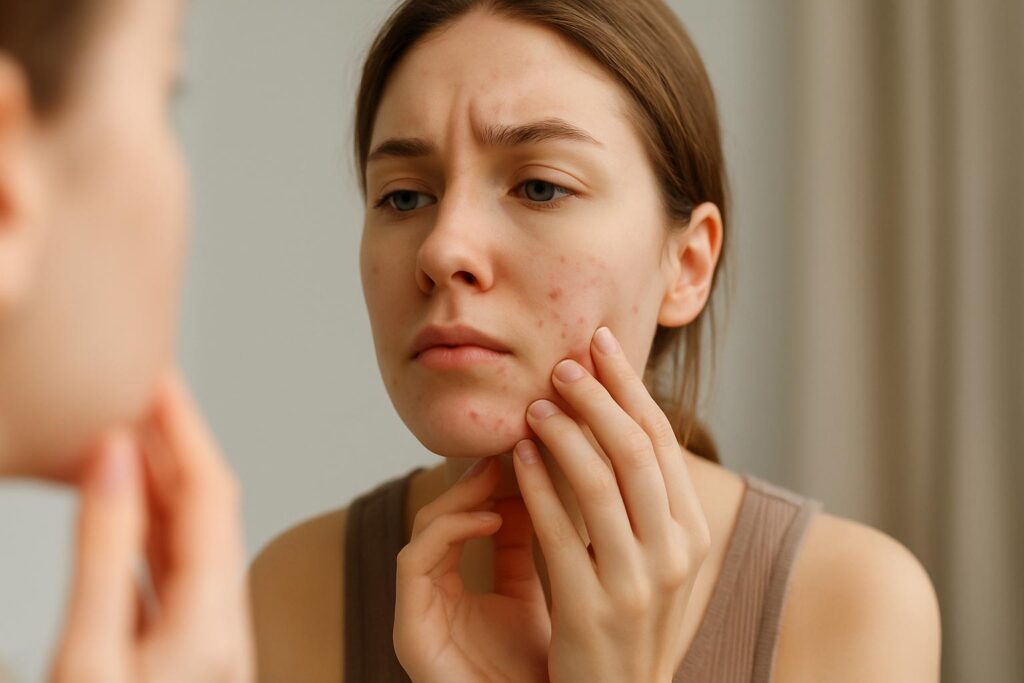Many women are familiar with it: the skin feels different from week to week - sometimes clear and radiant, sometimes oily and irritated. But what is really behind this? The answer is often in the female cycle - and how hormones influence the appearance of the skin.
Why the cycle is more than just "the days"
The menstrual cycle is a finely tuned interplay of hormones such as Oestrogen, Progesterone and Testosterone - and these act not only on the uterus, but also on the entire bodyincluding skin, mood and energy.
The skin during the cycle - week by week
Phase 1: Menstruation (day 1-5)
- Hormone levels drop sharply
- Skin often appears pale, dry and sensitive
- Pimples due to inflammation are possible
👉 Care tip: Low-irritation, moisturising care. Now is the time for regeneration - for skin and body.
Phase 2: Follicular phase (day 6-13)
- Oestrogen increases
- Skin becomes smoother, fresher, radiant
- Sebum production decreases - pimples subside
👉 Care tip: Now is the best time for peelings, active ingredient care (e.g. vitamin C, retinol) - the skin is receptive.
Phase 3: Ovulation (day 14-16)
- Oestrogen peak + slight increase in testosterone
- Skin is often at its peak - but: Impurities possible
- Pores appear slightly larger, sebum increases slightly
👉 Care tip: Pay attention to balance - moisturising + light cleansing, but no over-care.
Phase 4: Luteal phase (day 17-28)
- Progesterone rises, then everything falls
- Skin becomes oilier, pores clog more easily
- Many are now experiencing hormonal pimples - especially on the chin
👉 Care tip: Anti-inflammatory agents such as niacinamide or zinc can help - but remain gentle.
Understanding hormonal skin means: patient & strategic care
If you know the phases of your cycle, you can recognise skin changes not only accept betterbut more targeted care. Instead of panic-testing new products, it is often more helpful to observe your own hormone levels.
3 practical tips for cycle-conscious skincare
✅ Keep a skin diary: Make a note of your skin condition, diet and cycle week by week. Patterns become visible.
✅ Easily customise care: No need for a complete product change - small adjustments are often enough.
✅ Go easy on yourself: Hormonal fluctuations are normal. Your skin is not a problem - it is a reflection of your inner balance.
Conclusion
Cycle-related skin changes are not a flaw - they are an expression of natural rhythms. Understanding them not only improves skin health, but also self-image. And that is exactly what true skincare is all about: honest, holistic and in harmony with yourself.
